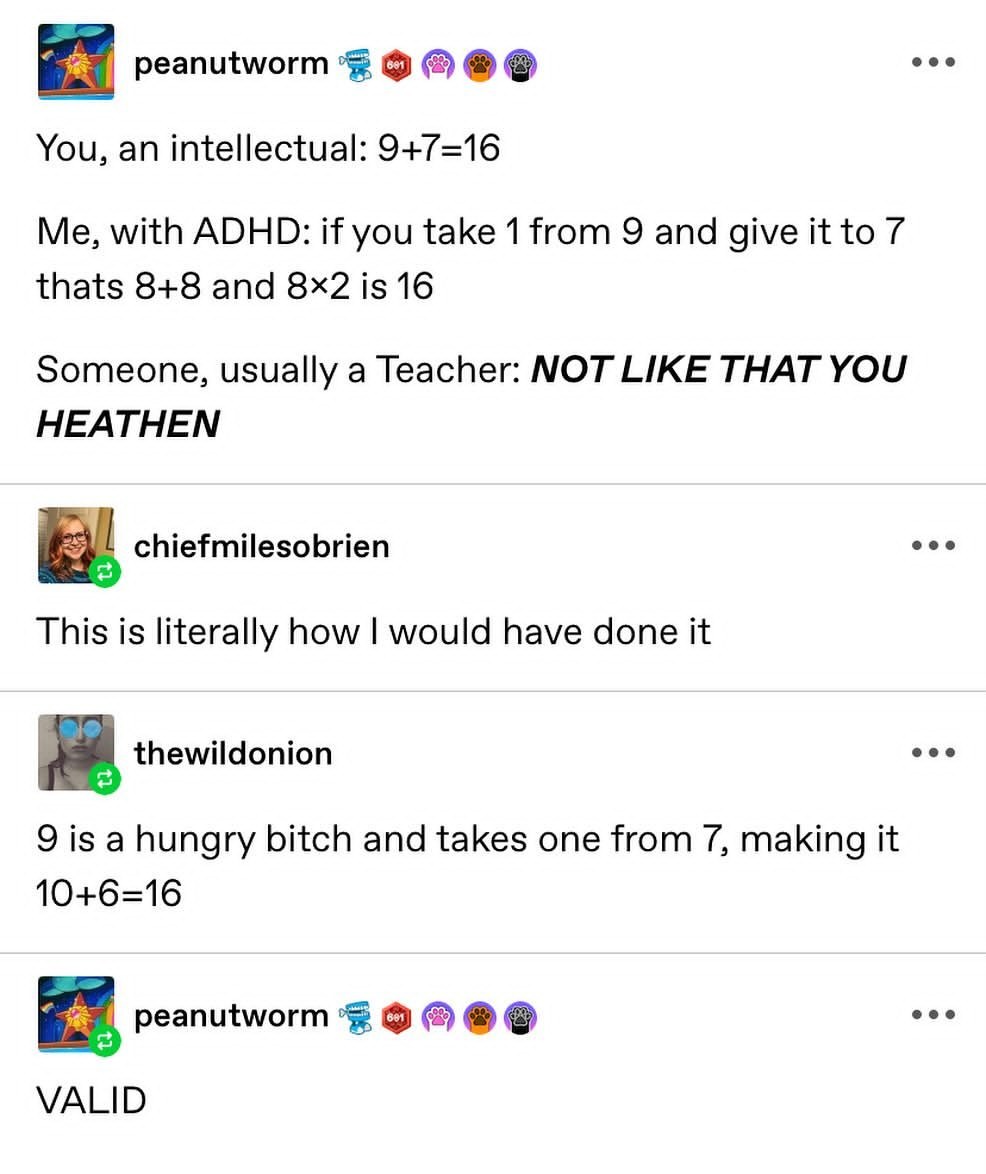this post was submitted on 18 Oct 2024
661 points (95.3% liked)
Curated Tumblr
5061 readers
23 users here now
For preserving the least toxic and most culturally relevant Tumblr heritage posts.
The best transcribed post each week will be pinned and receive a random bitmap of a trophy superimposed with the author's username and a personalized message. Here are some OCR tools to assist you in your endeavors:
-
FOSS Android Recs per u/[email protected]: 1 , 2
Don't be mean. I promise to do my best to judge that fairly.
founded 2 years ago
MODERATORS
you are viewing a single comment's thread
view the rest of the comments
view the rest of the comments

I think my 7yo visualizes the number line in their head when there's no paper around, but they draw it out in school. I personally don't understand that method, because I always learned to do it like this:
And add by columns. With a number line you add by places, so left to right (starting at 7372, jump 2 hundreds, 7 tens, and 3 ones), whereas with the above method, you'd go right to left, carrying as you go. The number line method gets you close to the number faster (so decent for mental estimates), but it requires counting at the end. The column method is harder for mental math, but it's a lot closer to multiplication, so it's good to get practice (IMO) with keeping intermediate calculations in your head.
I think it's nonsense because it doesn't scale to other types of math very well.
You still haven't told me what the number line method actually is. I know how to add up the columns bud
Number line is something like this:
You write out the numbers that are relevant and hop by those increments. So for 7372 + 273, you'd probably start at 7000, hop 100 x 5 (3 for 372 and 2 for 273), hop 10 x 14 (7 for 72 and 7 for 73), and so on. It's basically teaching you to count in larger groups.
To multiply, you count by the multiple (so for 7 x 3, you'd jump in groups of 3).
This article seems to explain it. I didn't learn it that way, so I could be getting it wrong, but it seems you do larger jumps and and the jumps get smaller as you go. I think it's nonsense, but maybe it helps some kids. I was never a visual/graphical learner though.
So, are you just talking about number lines in general?
I learned how to use those in grade school too. 20+ years ago. But the way you phrased it made me think there was more to it. Calling it nonsense is.. shocking.
I guess we used it for an exercise or something a couple times, but never for more than indicating how numbers work. They've taken that idea and kind of run with it, instead of leaving it behind once the basics of addition have been mastered. I learned multiplication as just repeated addition, and there's no reason IMO to get a number line involved because addition should already be mastered.
This is a 2nd grade class, and I expect them to have long since mastered addition. At that point, a number line feels like a crutch more than a useful tool. Sure, use them in kindergarten and first grade to grasp how counting works (and counting by 2s and 10s), but that should honestly be as far as it goes. But they still use it for fractions and larger sums and products.